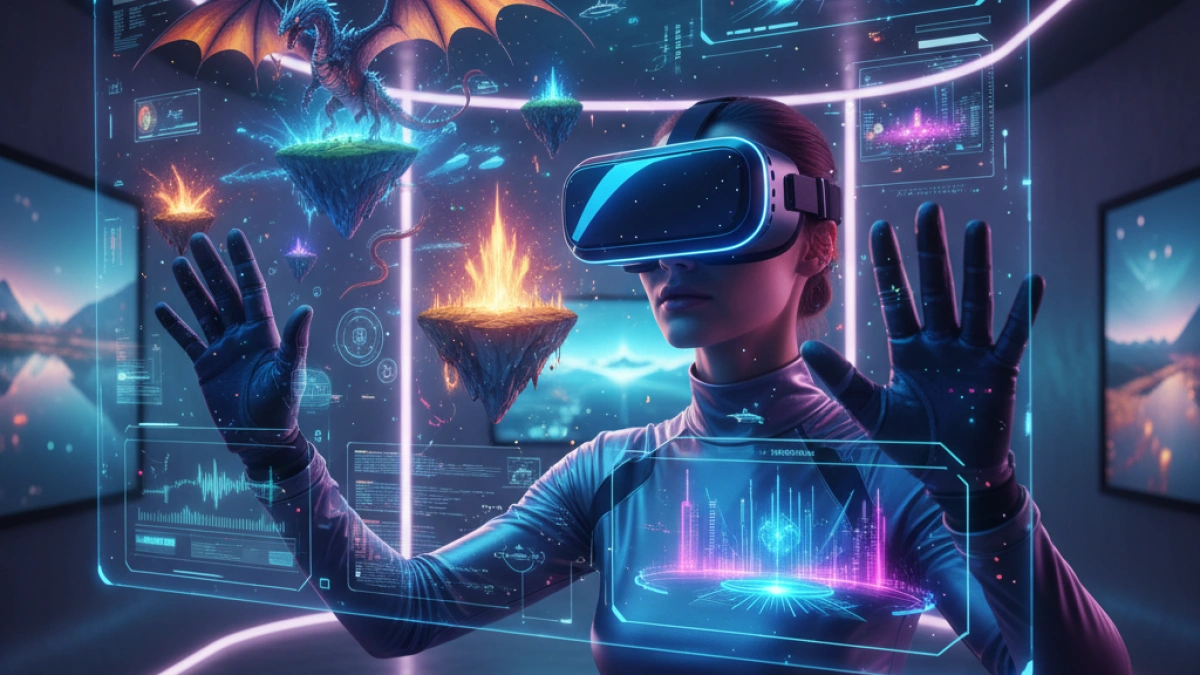The Future of Virtual Reality and Its Impact on Video Games and Entertainment


Virtual reality (VR) has become a common term in discussions about technology and entertainment. Its ability to transport users to other worlds, offering immersive experiences, has changed the way we interact with video games and entertainment in general. In this article, we will explore the future of virtual reality and how it is set to transform the entertainment industry.
What is Virtual Reality?
Virtual reality is a computer-generated simulation that allows users to interact with a three-dimensional environment. Using devices such as VR headsets and tracking gloves, users can immerse themselves in digital worlds, experience stories in a unique way, and connect with others in innovative ways.
Key Components of Virtual Reality
- Input Devices: Equipment such as VR headsets and controllers that allow users to interact with the virtual environment.
- 3D Simulation: The creation of digital environments that replicate the real world or construct entirely new spaces.
- Software: Programs and graphic engines that enable the creation of immersive VR experiences.
The Evolution of Virtual Reality in Video Games
From Its Beginnings to the Present
VR has come a long way since its early manifestations in the 1960s and 70s to modern platforms like Oculus Rift, HTC Vive, and PlayStation VR. Over the years, technological advancements have made VR more accessible and appealing to gamers.
Current Trends in Virtual Reality Video Games
- Multiplayer Experiences: VR games now allow multiple people to play in shared spaces, fostering social interaction.
- Educational Use Cases: Games and applications that assist in teaching various subjects through interactive simulations.
Impact of Virtual Reality on Entertainment
Beyond Video Games
The impact of virtual reality is not limited to video games. Film, music, and other forms of entertainment are beginning to experience their own transformations.
Film and Virtual Reality
With the ability to tell stories from unique perspectives, VR cinema allows viewers to immerse themselves in the narrative like never before. Interactive movies are starting to hit the market, providing a more personal experience.
Concerts and Live Events
Virtual reality is already being used to create concerts and live events accessible from home, offering fans the chance to enjoy memorable experiences without needing to leave their homes.
The Future of Virtual Reality
Technological Innovations
The evolution of virtual reality is driven by new technologies. Some key areas of innovation include:
- Improved Graphic Quality: Resolution and graphical realism will continue to improve, making experiences even more immersive.
- Reduced Latency: With advancements in performance and connectivity, delays in motion tracking will decrease, creating a smoother experience.
Integration with Other Technologies
VR will not exist in a vacuum. The integration with other emerging technologies such as artificial intelligence (AI) and augmented reality (AR) is expected to create even richer experiences.
Challenges and Opportunities
Challenges of Virtual Reality
Despite its potential, virtual reality faces several challenges, such as:
- Cost: High-quality devices can still be prohibitive for many consumers.
- Accessibility: The lack of inclusive content and experiences limits adoption.
Market Opportunities
Despite these challenges, the growing demand for immersive experiences is creating opportunities for developers and entertainment companies. Collaboration between creators and technologists will be key to unlocking the true potential of virtual reality.
Conclusion
The future of virtual reality is promising and exciting, particularly in the realm of video games and entertainment. As technology advances, experiences will become increasingly immersive and thrilling. Virtual reality will not only transform how we play and experience stories but also change the way we interact with others and perceive the digital world. Adapting to these changes will be essential for both creators and consumers alike, paving the way for a new paradigm in entertainment.
This article is optimized for SEO by including relevant keywords about virtual reality, its impact on video games, and entertainment, which will help improve its visibility on search engines.



















